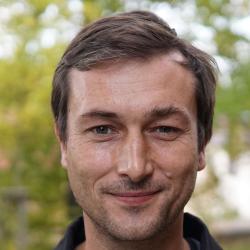The Sea Level Research laboratory in the Department of Geosciences at the University of Rhode Island is looking to recruit a PhD student to work on an NSF funded project focused on paleoseismology of the Cascadia subduction zone.
The project involves collaboration with Rutgers University, University of North Carolina Wilmington, and the United States Geological Survey. The position can start as early as September 1st 2014.
Project Overview
Cascadia has not experienced rupture during the instrumental or regional historical period. But the wetland sediments fringing estuaries at the Cascadia subduction zone harbor a record of plate-boundary earthquakes during the past 5000 years. These are inferred from stratigraphic evidence of interbedded peaty and muddy sediment beneath tidal wetlands
that are used to reconstruct land-level changes. The graduate student will test three research hypotheses regarding the nature of rupture during the AD 1700 and three earlier megathrust earthquakes:
- Coseismic subsidence varied spatially and temporally during past Cascadia plate-boundary earthquakes;
- Estimates of coseismic subsidence can differentiate between wide and narrow rupture widths
- More precise dating of earthquake evidence allows more direct evaluation of megathrust segmentation.
The PhD is fully funded and includes tuition remission, stipend, and benefits.
Applicants will ideally have experience of field research in coastal settings and good statistical skills. Interested students should send a CV along with a short description of academic background, research interests, and any other supporting information they feel is relevant to Dr. Simon Engelhart (engelhart at uri.edu).
Download the ad here (pdf): Grad Advert Cascadia PhD
URI Sea Level Lab on Twitter: @URISeaLevel



No Comments
No comments yet.